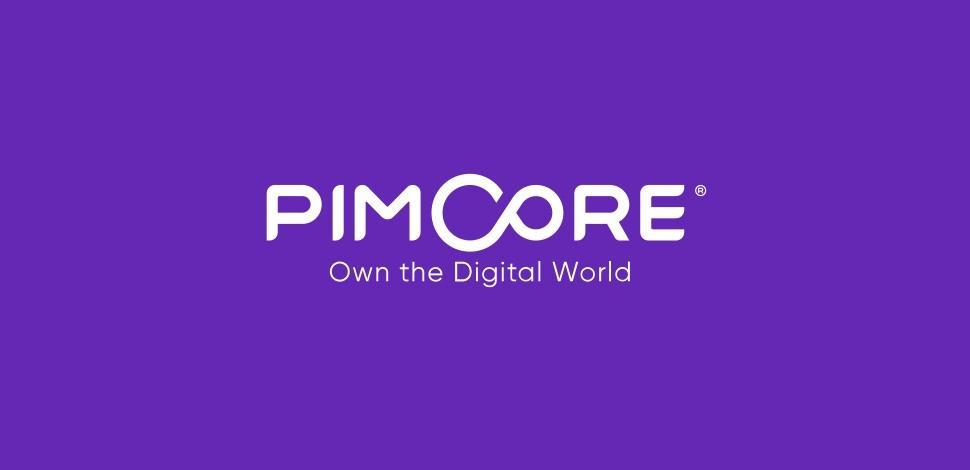ul. Strzegomska 2-4
53-611 Wrocław
NIP 8992786490
KRS 0000608120
REGON 363987723
Global4Net Sp. z o. o.
+48 71 358 41 00
© 2009 – Global4Net. All Rights Reserved.

Pimcore, along with Akeneo, is one of the more frequently considered systems collecting product information in the case of e-commerce activities. The system’s task is to collect all the data in one place and manage it in the most flexible way. Additionally, Pimcore also allows you to manage customer and supplier information broken down into the organizations and industries with which they are associated. What, however, decided that the popularity of the system is constantly growing?
The flexibility of modeling and data storage is what distinguishes the system from other similar solutions. Creating new products takes only a few minutes and the palette of data types is extremely wide – Pimcore allows you to store over 40 data types and even several million products and thousands of related attributes
Pimcore, like other PIM systems, provides a multi-language support, allows for a relatively easy translation of the product offering into other languages. The administration panel itself is available in 20 different languages.
In Pimcore it is possible to store not only text data but of course also the type of files. With this system, we can store not only graphic files but also documents, audio files and video files, which can then be presented in different channels.
Data inheritance is the key to creating data resources in the Pimcore system. This approach has revolutionized the way data is stored in PIM by reducing the time needed to put the product into a new sales channel, greatly simplifying all editorial processes and allowing data to be stored in one place. Data is structured by hierarchizing them into groups between which a subordinate relationship may exist.
Data management has never been so easy. Introducing translations, organizing data, their classification and storage with Pimcore becomes a child’s play.
What distinguishes the Pimcore system are intuitive functionalities and unprecedented possibilities. It is possible to manage almost every aspect of a single record – its hierarchy, structure, control of correctness, versioning. Thanks to the use of various types of attributes, records can be enriched through descriptions, documentation, graphic or multimedia files.
Cumulative data editing is something that distinguishes Pimcore is a collective data edition similar to how it is done in Excel. The flexible user interface is used for three basic tasks: collective editing of records, bulk editing of selected records, and searching and filtering of specific records based on the built-in query generator.
What distinguishes Pimcore among other systems is flexibility. The application interface can be 100% adapted to the preferences and needs of individual users. Thanks to advanced views and the possibility to modify the layout of subpages to the level of individual data entry fields in a given view. The result is an optimized environment with a considerably legitimate workflow.
In addition to data storage, Pimcore also has extensive functionality for managing clients. The system allows not only for collecting customer data but also for their subsequent segmentation, personalization and some kind of data flow automation. Customer and user profiles can be aggregated and then enriched with additional data, which can then be segmented. On the basis of these solutions, clients can be segmented due to selected data, and then a programmed sequence of actions is started, supporting the automation of marketing in the company.
Thanks to the API, Pimcore allows easy import and export of data between external systems, what’s more, the system is compatible with any MDM implementation system (Mobile Device Management – a system for managing enterprise mobility, used to retrieve data and collect data about the user’s context and mobile device). The API system ensures comprehensive operation within the enterprise (ERP, CRM, WMS, BI, ESB) or external third-party applications. For this purpose, the REST API is used to allow two-way data exchange with external systems in real time.
A free add-on to Pimcore Import / Export Toolkit allows you to perform automatic and manual data import. The exchanged data can be freely prepared and mapped as required
Import and export of CSV files is built into the Pimcore system by default, fields can be freely mapped for imported files, and freely defined for export to an external file.
Data fields in Pimcore can be checked based on predefined rules. In addition, Pimcore offers various types of data entered (dropdown list, multi-select, select, etc.) which pre-determine the possibility of entering values into them.
The function of validating data and reports, their quality and calculation fields of values allows for efficient monitoring of the completeness and detail of data. In this way, the quality of data and its completeness are improved. For example, we can define the degree of completeness of data allowing for their export to a given marketing and sales channel.
Pimcore is equipped with the functions of audit and versioning. Each record change creates a new version, simultaneously saving the so-called audit trail. For more detailed insight, different versions are compared with the differences between the versions.
Among the reports generated by Pimcore, it is possible to generate a report on the quality and completeness of data, as well as other reports with various filtering and export functions. Thanks to this, Pimcore allows you to easily visualize the progress in the completeness of the entered data as well as the scale of work that should be carried out.
The advanced mechanism for creating a workflow, including editorial workflows as well as defining business processes is another feature that distinguishes Pimcore among other systems of this type.
Pimcore allows you to create extremely advanced workflow scenarios, distinguishing elements such as states, statistics, actions, transitions, notifications allows you to define flexible workflows used for effective editorial work.
The entire interface of the Primcore application can be fully adapted to the needs of a given company, thanks to which the system provides flexibility and comfort of work that is incomparable to any other such tool.
It depends, on one hand, is an extremely complex system giving really great opportunities, on the other hand, many companies will not be able to use up to half of its potential. There is no doubt that currently among the PIM software of this type are the leaders of Akeneo and Pimcore, which ones will work better in a given company depends on specific business needs.
Write to us




